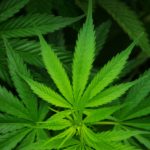Does alcohol consumption increase intoxication from marijuana?
How much marijuana does it take to be impaired? Alcohol and marijuana can interact to increase impairment while driving.

Toxicologist Expert on OWI Cases
A Toxicologist is a scientist who has a strong understanding of many scientific disciplines, such as biology and chemistry. Some toxicologists testify as experts in criminal trials, including trials on OWI charges. In many driving under the influence of marijuana cases, a toxicologist can help the defense lawyer formulate a winning defense.
Toxicologist expert Jim Wigmore recently published a study on the impact of alcohol consumption in combination with the ingestion of THC (marijuana). The study involved 22 male and female subjects who were either given placebo alcohol or real alcohol. Then each of them is ingested by oral inhalation (vaporizer administration), either placebo THC, low THC, or a high THC dosage. The results of the study are highly relevant to the defense of driving under the influence of marijuana charges.
After consuming the alcohol/placebo alcohol and one of the THC samples, blood samples were collected for up to 8.3 hours. Blood and plasma cannabinoid concentrations were measured for the 19 subjects who fully complied with and completed the study.
The results? Significant proof that alcohol consumption significantly increased the maximum blood THC and 11-OH-THC combinations. For example, with alcohol, the blood 11-OH-THC in the high cannabinoid group had an average reading of 6.0 ug/L, while the group that did not consume alcohol only had a 5.0 ug/L reading. Results were very similar in blood THC and with subjects who had low cannabinoid consumption instead of high cannabinoid consumption. All blood test analyses in Michigan are done at the Michigan State Police laboratory.

Glossary of Terms Related to the Defense of Driving Under the Influence of Marijuana Charges
Δ9-tetrahydrocannabinol (Δ9-THC): The primary psychotropic compound in marihuana. Δ9-THC belongs to a broader family of compounds with a similar chemical structure termed cannabinoids.
11-carboxy-THC: A significant metabolite of Δ9-tetrahydrocannabinol and possesses minimal psychotropic properties.
11-hydroxy-THC: A significant metabolite of Δ9-tetrahydrocannabinol and possesses psychotropic properties.
Absorption: The movement of drugs and chemicals across biological membranes to enter the body.
Binding Affinity: The strength in which a drug binds with specificity to a protein, typically a receptor or enzyme. Typically, the higher the affinity of specific binding between a drug and receptor, the greater the biological activity initiated.
Bioavailability: The percentage of the total amount of a drug or chemical absorbed after administration and available to exert its biological activity.
Biphasic: A process possessing two distinct phases or stages.
Cannabidiol (CBD): A chemical naturally produced by the cannabis sativa belonging to the family of compounds termed cannabinoids. CBD has minimal psychotropic activity.
Cannabinoid Receptor 1: A protein on the surface of cells to which cannabinoids bind to initiate their biological activity. Cannabinoid receptor 1 is highly abundant in neural cells within the brain and is responsible for the euphoric effects associated with marihuana.
Cannabis Sativa: A plant called marihuana. It is the source of plant-derived cannabinoid compounds, including Δ9-tetrahydrocannabinol (THC) that causes the impairment resulting in driving under the influence of marijuana charges.
Distribution: Once absorbed, the movement of drugs and chemicals throughout the body occurs primarily via circulation in the bloodstream.
Drug Half-Life: The period required to metabolize and/or eliminate one-half of the total amount of an absorbed drug.
Excretion: The elimination of compounds from the body in urine and feces.
First Pass Metabolism: The process by which when drugs and chemicals are absorbed from the gastrointestinal tract and enter the bloodstream, they are first transported to the liver to undergo metabolism.
Metabolism: The conversion of compounds by drug metabolizing enzymes primarily present in the liver to more water-soluble chemicals to enhance their utilization by the body and excretion in urine and feces.
Oromucosal Route: Exposure occurs by applying chemicals to the oral cavity’s mucosal membrane.
Peak Plasma Concentration: The highest concentration of a drug or chemical present within plasma after initial exposure or administration.
Plasma Concentrations: The amount of a drug or chemical present in the blood’s liquid (i.e., non-cellular) portion.
Psychotropic Effects: Changes in brain function resulting in alterations in perception, mood, consciousness, cognition, and/or behavior that are typically caused by exposure to a chemical.
Respiratory Route: Exposure to an agent by inhalation via the lungs.
Structurally-Related Compounds: Chemicals possessing a similar basic chemical structure and belonging to a “family” of compounds with similar chemical and/or biological properties.
Tincture: A concentrated liquid herbal extract.
Vascular: Related to blood vessels.

Why your defense attorney must understand the science of driving under the influence of marijuana to defend your case adequately?
The science of how marijuana and other controlled substances can affect a person’s level of impairment is critical to defending charges of OWI, DUI, OWPD, and Operating Under the Influence of Controlled Substance charges. The Defense Team with LEWIS & DICKSTEIN, P.L.L.C. stays on top of the latest scientific studies so that we can provide the most vigorous possible defense for our clients charged with alcohol or drug-related driving charges. The defense to these charges can be legal, factual, scientific, or medical, and we stay abreast of all of the possible defenses in these felony and misdemeanor cases.

Defense Lawyer for DUI, OWI, and Driving Under the Influence of Marijuana and other Controlled Substances
If you are charged with operating while intoxicated, operating with the presence of drugs, or driving under the influence of marijuana or a controlled substance, the Defense Team with LEWIS & DICKSTEIN, P.L.L.C. is ready to help you. We have decades of experience and an unparalleled track record of success defending clients charged with OWPD and other marijuana-related offenses. The defense attorneys with LEWIS & DICKSTEIN, P.L.L.C. are award-winning and nationally ranked for providing the best possible defense to criminal charges.
Call us today at (248) 263-6800 for a free consultation or complete an online Request for Assistance Form. We will contact you promptly and find a way to help you.














